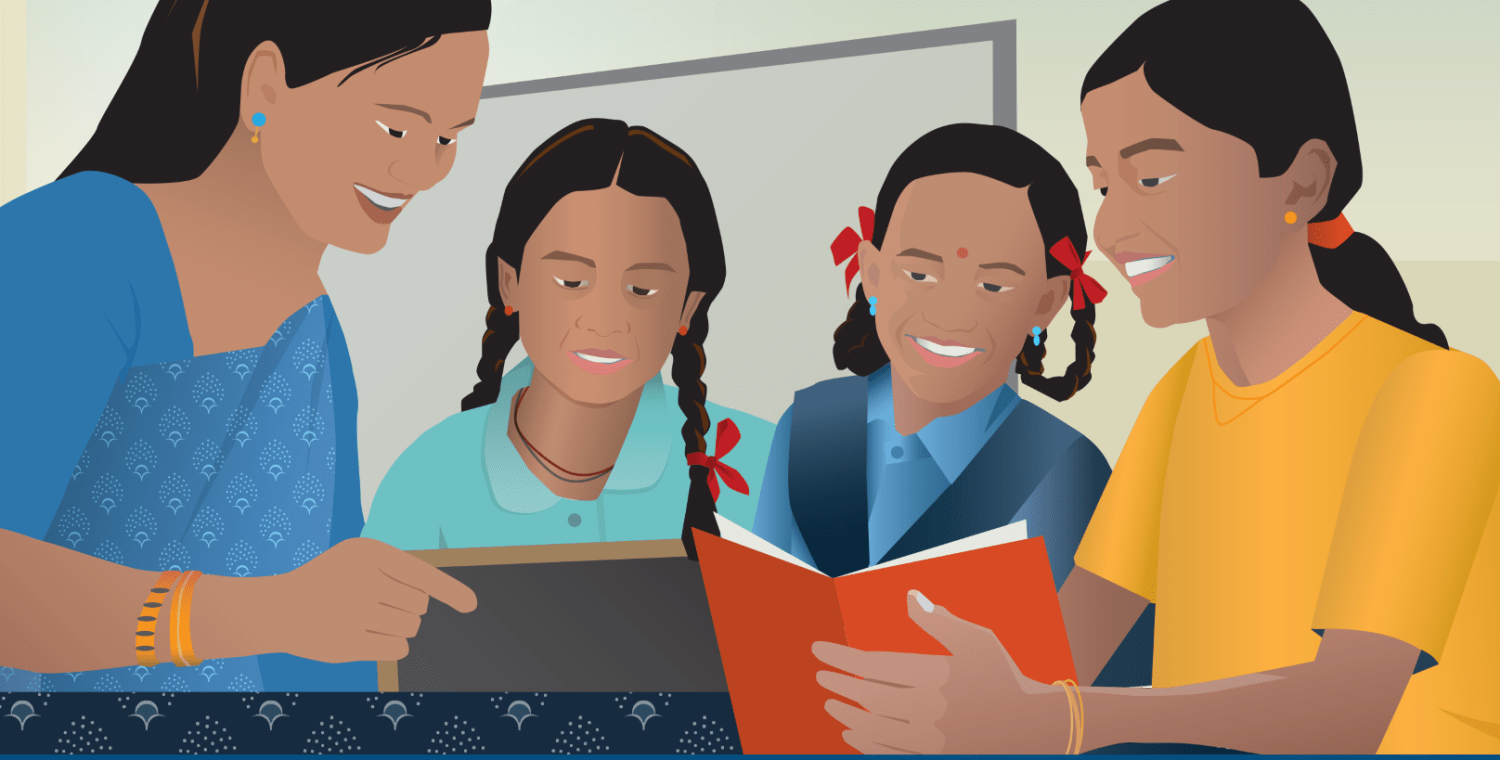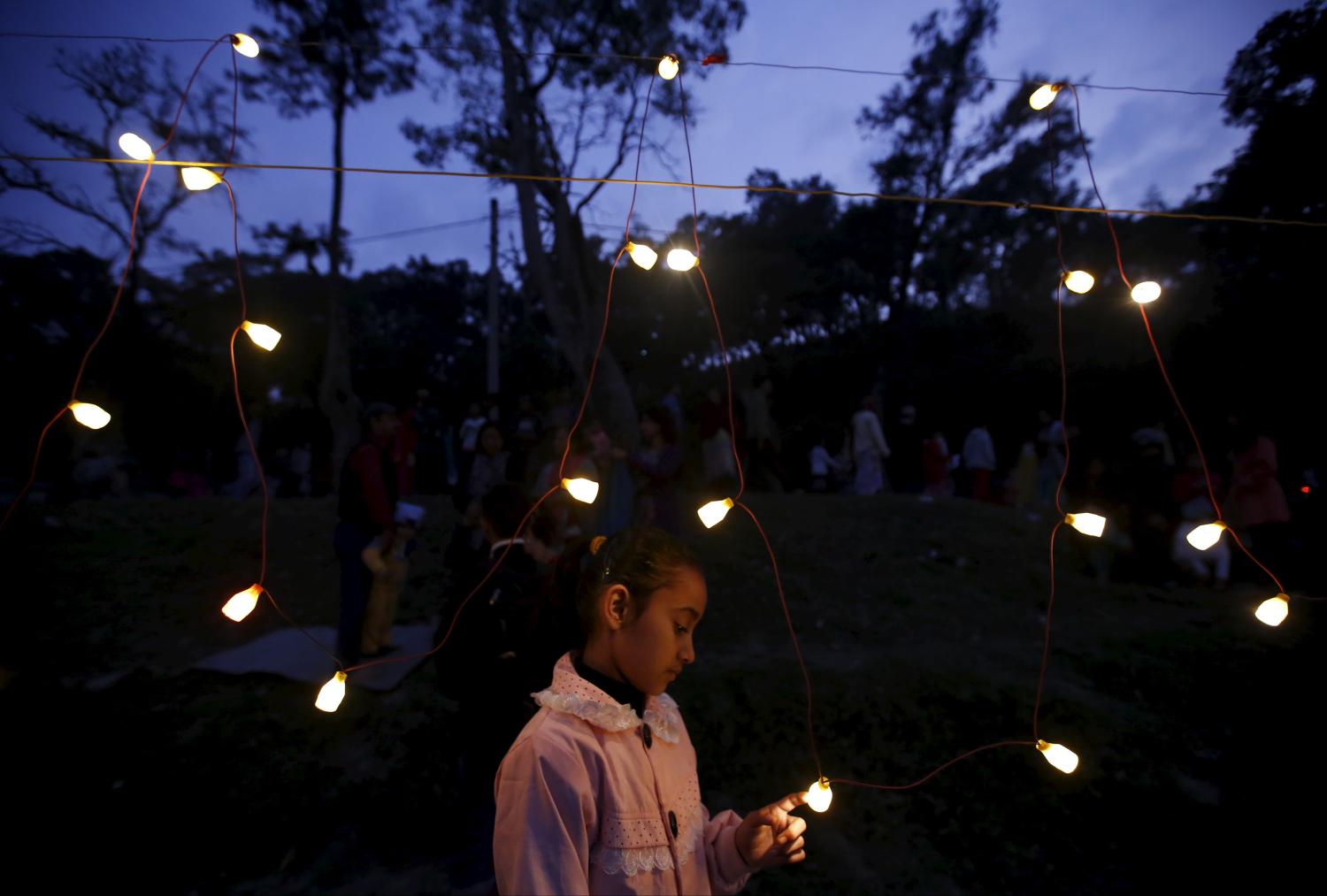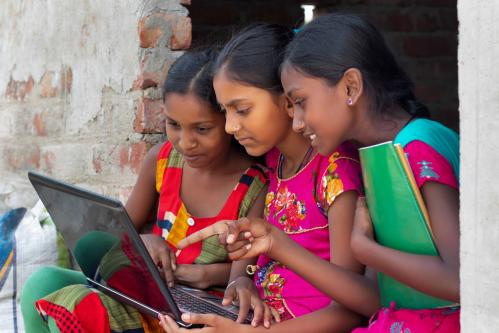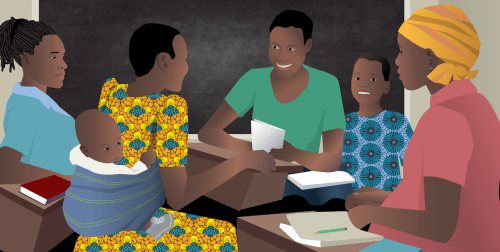As one of the fastest growing economies globally, India aims to achieve high middle-income status by 2047, in part through emphasizing women-led development. In a demographically young country, where one in every five people is 10 to 19 years old, how can India be women-led in the future without being girl-led now?
Strengthening the agency of India’s 120 million adolescent girls—including ensuring their safety, health, and education—is vital for the country’s progress. However, socio-cultural norms and limited access to information and spaces to develop key relationships and competencies significantly constrain their potential.
Growing evidence underscores the potential transformative impact of safe spaces where girls can develop knowledge, skills, beliefs, and relationships that support their agency. This policy brief explores the potential transformative impact of gender-transformative safe spaces (GTSS) for adolescent girls in marginalized communities in South India. It presents evidence of the ways in which such spaces empower girls by providing critical knowledge, skills, and solidarity, enabling them to exercise agency and drive social change.
The brief recommends establishing GTSS in schools, enhancing community engagement, and promoting multisectoral collaboration to dismantle intergenerational cycles of oppression. By investing in initiatives that prioritize girls’ agency, India can ensure a prosperous and gender-equal future for all its citizens.
As one of the fastest growing economies globally, India aims to achieve high middle-income status by 2047, in part through emphasizing women-led development. In a demographically young country, where one in every five people is 10 to 19 years old, how can India be women-led in the future without being girl-led now?
The Brookings Institution is committed to quality, independence, and impact.
We are supported by a diverse array of funders. In line with our values and policies, each Brookings publication represents the sole views of its author(s).







